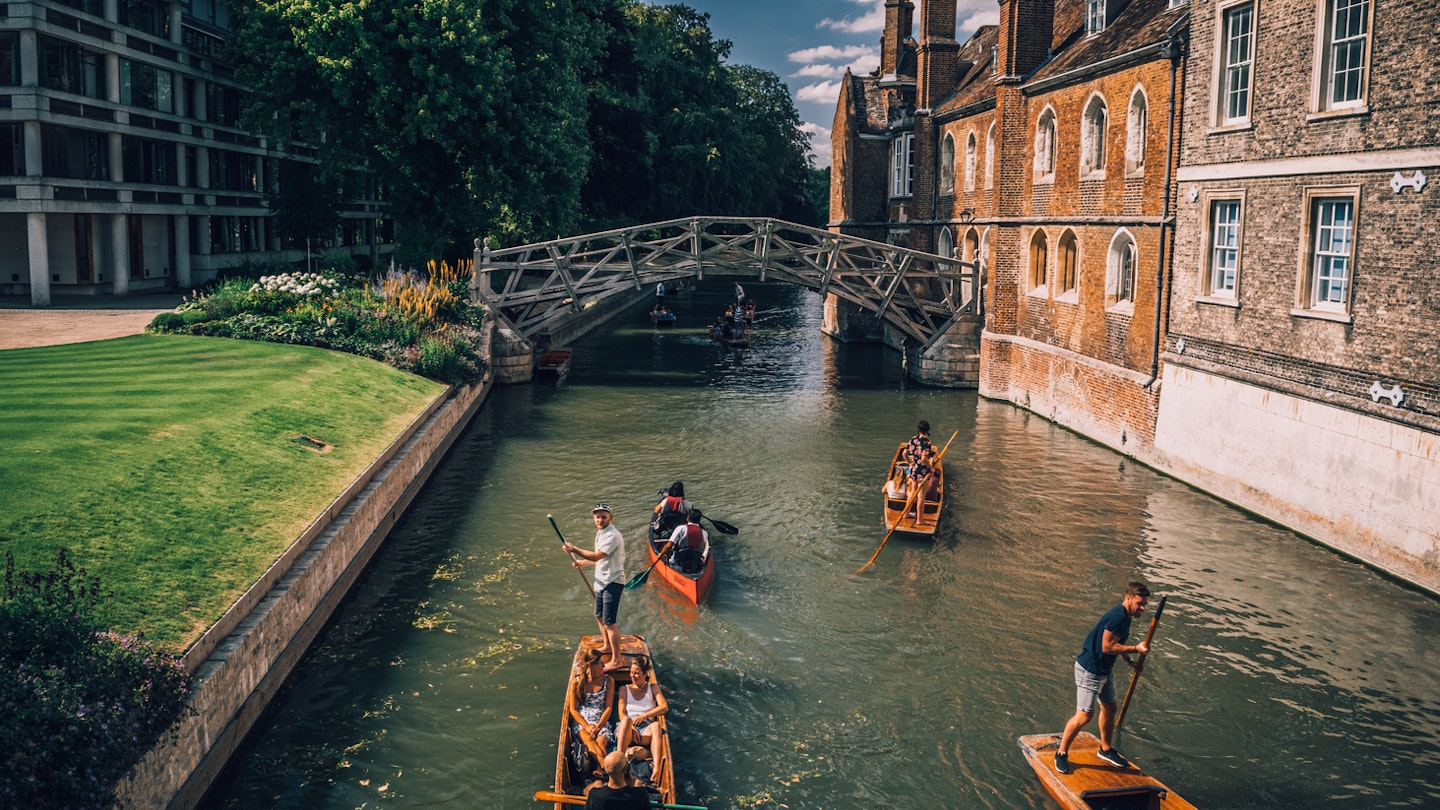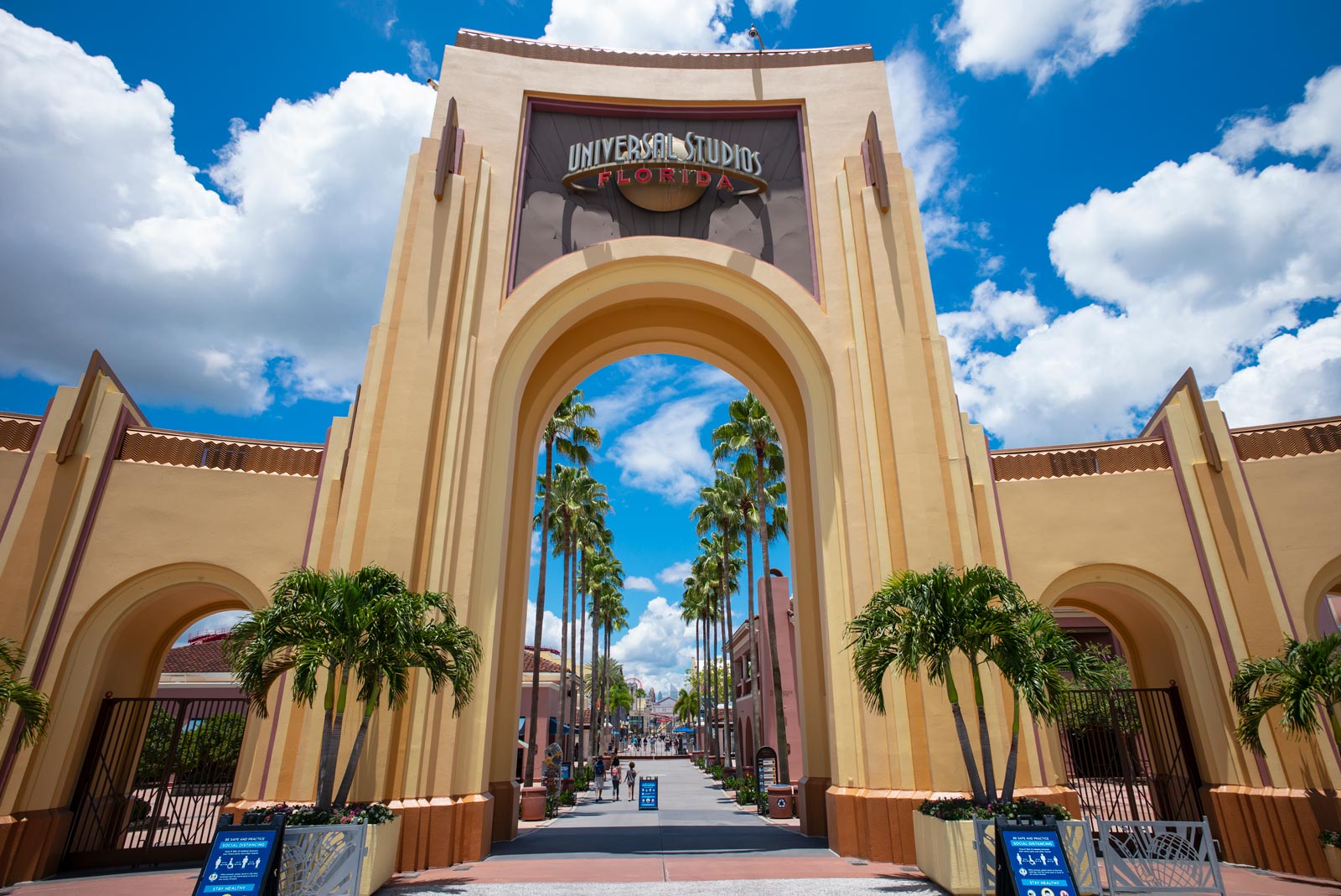Discover the Architectural Wonders of Cambridge
Home to one of England’s oldest and most prestigious universities, beautiful bridges, and wonderful shopping streets, Cambridge is a fascinating city for architecture aficionados.
The city is built around the River Cam, and its 25 bridges offer interesting architectural feats best enjoyed up close on a punting tour that takes you directly beneath them. Combine this with one of the city’s walking tours, and you’ll cover many of Cambridge’s landmarks.
The city is a joy to stroll, with yellow-stone buildings, clean streets, and cobbles beneath your feet. The perfectly manicured lawns outside the historic university buildings are iconic, and the medieval churches and low-rise Tudor houses provide an impressive sight for any fan of fine architecture. Take a moment to observe how newer constructions blend in with older buildings, showcasing how design and engineering can come together to create one of the most architecturally interesting cities in England.
Go Punting Under the Mathematical Bridge
The Mathematical Bridge is one of the most iconic spots in Cambridge. This wooden footbridge is supported by the Riverside Building – the oldest building on the river, dating from 1460 – and a Grade-II-listed structure.
Designed and built in 1749, the bridge has been rebuilt twice due to aging timber, but its distinctive design has been retained. It appears to be an arch, but as you approach, you’ll discover it is constructed entirely from straight timbers, employing the Chinese building technique of tangential radial trussing. The timbers are arranged in various tangents with an open design that allows the wind to flow through.
Being a bridge, the best way to understand this tension and compression is by going underneath it on a punting tour. It crosses the 50ft-wide (15m) River Cam, giving ample space to maneuver. Should you prefer not to punt, you can see the bridge for free from Silver Street or pay £3.50 to cross it.

Wander Around Cambridge’s Unique Shops
Some of the best representations of impressive Cambridge architecture can be found on the streets and in charming shops along Mill Road, All Saints Passage, and St Edwards Passage. Look out for the interesting colorful facades at the Cambridge Gin Laboratory, Chocolat Chocolat, and The Cambridge Cheese Company in particular.
Admire the Fitzwilliam Museum Inside and Out
If you’re searching for some of the most impressive buildings in Cambridge, visiting the Fitzwilliam Museum is essential.
While many people visit the Fitzwilliam Museum for its collection of over half a million works of art, masterpiece paintings, and historical artifacts, its exterior is equally remarkable. Founded in 1816, this Grade-I-listed building represents some of the finest architecture in Cambridge.
Massive green gates crowned with gold pineapples guard the entrance, and elegant neoclassical pillars create a grand atmosphere. Step inside and look up to admire the stunning ceiling in the main hall before exploring the long corridors and high-ceilinged rooms of one of Cambridge’s top attractions. Admission is free; however, a ticket is required.

Take in the Panoramic Views from Great St Mary’s Church Tower
If you’re visiting Cambridge to admire its architecture, be sure to include the university buildings. The alumni walking tours offer a great way to spend a day. Alternatively, climbing the Great St Mary’s Church Tower provides another excellent perspective for appreciating Cambridge’s architectural beauty.
For just £4, you can climb the 127 narrow, medieval spiral stairs leading to the viewing balcony. Timing your visit with the sunset offers a stunning view (be sure to check opening hours in advance).
Stay at the Modern West Court, Jesus College
The West Court, Jesus College is a prime example of modern architecture in Cambridge, showcasing high windows and an open design, complete with a microbrewery.
This recent extension harmonizes the city’s architecture heritage with modern design elements. The development has won multiple architecture awards since its opening. Staying in the hotel rooms now located there allows you to appreciate first-hand why it has received such acclaim.
Explore the Wren Library
Access to the Wren Library is limited to just 15 visitors at a time, operating only during lunchtime, making careful planning essential. If you are among the fortunate few, you will admire the expansive room with its checked floor, ceiling-high windows providing abundant reading light, and numerous VIP busts adorning the edges.
Designed by the renowned architect Christopher Wren, the library is noted not just for its architectural significance but also for its impressive collection of 70,000 books, which includes one of Sir Isaac Newton’s original notebooks and two manuscripts from AA Milne for Winnie the Pooh.

Visit the Eco-Friendly Central Mosque
Another marvel of modern architecture in Cambridge is the Cambridge Central Mosque, completed in 2019 as Europe’s first eco-friendly mosque. The architects behind the design were the same team who worked on the London Eye, with a mission to create a British mosque suitable for the 21st century.
The result is an aesthetically pleasing and architecturally impressive building that is also practical and sustainable. A visit here includes a tour where you can learn about the mosque’s design elements that minimize carbon emissions, including a solar panel heating system and locally generated energy sources. Rainwater is harnessed for irrigation and toilets, and sustainably sourced materials were utilized in its construction. Inside, a botanical garden thrives, while large timber columns resembling trees support the roof, designed to capture shifting light throughout the day. The mosque took a decade to complete, with a cost exceeding £23 million, making it one of Cambridge’s most recent architectural achievements.
Explore the Impressive Round Church
As one of the oldest buildings in Cambridge and one of only four round churches in Britain, any self-guided architectural tour of the city should include a visit to the Round Church.
This Norman structure, dating back to 1130 CE, is modeled after the Holy Sepulchre in Jerusalem, with various adaptations throughout the years contributing to its unique architectural significance. The cherished Cambridge landmark is surrounded by trees, and for just £3.50, visitors can enter and uncover its remarkable architectural history and understand why it’s regarded as one of the city’s most important buildings.




